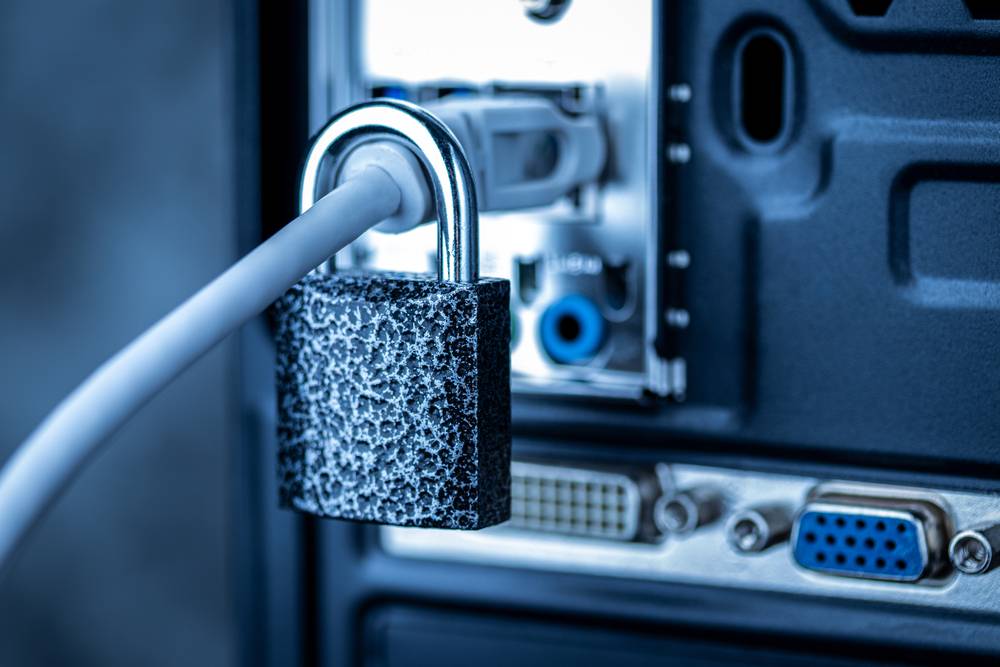Managed Firewall Services
In a world of increasingly sophisticated cyber attacks, a firewall has to be an important part of any comprehensive network security strategy. Without a managed firewall service, your data could be compromised and your business vulnerable to external threats.
By providing protection against malicious traffic, keeping your data and sensitive information safe, and helping to meet security and compliance regulations, a firewall is a valuable investment for any organisation.

What is firewall security?
Firewall security refers to the use of a firewall to protect a network from external threats, such as hackers, malware or ransomware. It creates a barrier between a trusted internal network and an untrusted external network, such as the internet.
Firewalls work by controlling incoming and outgoing network traffic, based on predetermined security rules. These rules can be based on a number of factors, including the source or destination of the traffic, the type of traffic or the port number being used.
Network firewall security can also be configured to log and alert administrators of any suspicious or malicious activity.
The technology behind our managed firewall services
Our customers have access to cutting-edge technology from some of the world’s leading providers of network security firewalls. In particular, our partnerships with Cisco, Cisco Meraki and Fortinet allows us to deliver value-added services, focused technical expertise and higher levels of customer satisfaction.
Cisco Next Generation Firewalls
Network firewall devices that provide advanced security features such as application control, intrusion prevention and advanced malware protection. Designed to be scalable and flexible, they can be deployed in a variety of network environments.
Cisco Meraki MX Firewalls
A cloud-managed network firewall security system that offers advanced features including content filtering, intrusion prevention and VPN connectivity. Easy to deploy and manage, they’re particularly suited to small and medium-sized businesses,plus large geographically dispersed companies.
Smoothwall Firewall
A Linux-based firewall solution that comes complete with state-of-the-art security features such as intrusion prevention, content filtering and VPN connectivity. Easy to install and manage, this network firewall is suitable for the Education sector.
Fortinet Firewalls
A line of network security devices that come with application control, intrusion prevention and advanced malware protection. Suitable for organisations of all sizes, they are designed to be scalable and flexible, allowing them to be deployed in a variety of network environments.

Firewall configuration and monitoring
Protecting against threats and maintaining network functionality, configuration and monitoring are two essential critical elements of firewall security.
Firewall configuration
Firewall configuration refers to the set of rules and settings which control the flow of incoming and outgoing network traffic. It helps to secure a network by allowing or denying access based on specified criteria, such as source IP address, port number or the type of data.
Firewall monitoring
The continuous monitoring of firewall activity and performance ensure that it is secure and functioning as it should. Firewall monitoring involves looking at firewall logs, network traffic and security alerts to identify potential threats, performance issues and misconfigurations.
Features of our managed firewall services
- Free consultancy – we talk about your requirements and budget and advise accordingly.
- Professional firewall installation – our security engineers will set up and fully test the system to ensure all requirements are met and any extra features work as they should.
- Ongoing management and support – by default, we proactively monitor for uptime, throughput, failover and other important metrics. We can also monitor and manage firmware updates and scan the firewall at certain periods for any vulnerabilities and report monthly back to you. Depending on what support package you go for, we are available 24/7/365 for any support calls or change requests. All backed up with clear SLAs.
Secure your network today
The best way to understand how we can help you protect your network is by talking to one of our experts about our managed firewall services.
FAQs
-
What are the different types of network firewalls?
There are four main categories of network firewalls used to protect organisations from ever more advanced external threats.
1. Packet filter firewalls
This type of firewall examines the header of each incoming and outgoing packet, which is a label that provides information about the packet’s contents, origin and destination. This firewall then decides whether to allow or block it based on predetermined rules. These are largely “extinct” now
2. Stateful inspection firewalls
This type of network firewall not only examines the header of each packet, but also maintains a state table to track the status of each connection. This allows it to better understand the context of the traffic and make more intelligent decisions about whether to allow or block it.
3. Application-level firewalls
This category of firewall inspects the content of each packet at the application layer of the Open Systems Interconnection model, rather than just the header. This allows it to make more granular decisions about what traffic to allow or block.
4. Next-generation firewalls
Next-generation firewalls combine all the capabilities of packet filter, stateful inspection and application-level firewalls, and may also include additional features such as intrusion prevention, content filtering and malware protection.
-
What is the best firewall to have for a business?
The best firewall for a business will depend on the specific needs and size of the organisation.
For small businesses, a next-generation firewall may be a good option because it provides a comprehensive set of security features in a single device. For larger enterprises, it may be more appropriate to use multiple firewalls in a layered security approach, with different firewalls handling different types of traffic and threats.
-
What is a next-generation firewall?
A next-generation firewall (NGFW) is a network firewall that combines the capabilities of packet filter, stateful inspection and application-level firewalls, and may also include additional features such as intrusion prevention, content filtering and malware protection.
NGFWs are designed to provide a more comprehensive and granular level of security than traditional firewalls.
-
How do firewalls work?
Firewalls work by examining incoming and outgoing network traffic and deciding whether to allow or block it, based on predetermined rules. These rules may be based on a number of factors, such as the source and destination of the traffic, the type of traffic and the port number being used.
-
What sort of problems do network firewalls solve?
Network firewalls can help to solve a wide range of security problems, by preventing unauthorised access to a network from certain IP addresses or protecting against malware by blocking traffic from known malicious sources.
A network firewall can also enforce network policies. These include acceptable use policies, helping to ensure that employees are using network resources appropriately.
-
Do small businesses need a firewall?
Yes, just as large businesses do, small businesses should consider implementing a firewall to protect their network from external threats, like hackers and malware.
While small businesses may have fewer resources and a smaller network than larger enterprises, they are still at risk of cyber attacks and should take steps to protect themselves.
-
Are all firewalls made equal?
No. There’s a big gap between consumer grade firewalls and enterprise-level firewalls.
- Firmware updates – are they automatic and do you get notifications?
- Support – do they have a proper Transport Access Control (TAC) and do they have a 24/7 option?
- Hardware – do they have built in Application Specific Integrated Circuits (ASICs) for specific functions like SSL inspection and VPN encryption?
- Software – can you add software options like IPS, sandboxing and anti-virus?
Network security in action
WIFI FAULT FIND, REDESIGN, & IMPLEMENTATION
Alexandra Palace
With a WiFi system that had been in place since the 2012 Olympic Games, Alexandra Palace required a technical infrastructure…
Network Audit
Hillary’s Blinds Network Audit
Hilarys wanted a general network audit with recommendations for improvements, and to include a full network diagram.
Network Fault find
Leasing Company HQ Network Fault find Audit
The customer was having issues during a migration from a Cisco switched infrastructure to a new Dell setup. One of…
Related blog posts

Resources
The differences and benefits of 2FA and MFA
The importance of two-factor authentication (2FA) and multi-factor authentication (MFA) has never been greater. Before the turn of 2023, LastPass,…

Resources
What is smishing and how to defend against it
Smishing is becoming more & more rife & difficult to detect. Read our guide to find out what it is…

News
Guest wifi networks: how hospitality can improve user experience and network security
A decade ago, you may recall that a guest WiFi network was considered a luxury when you checked into a…